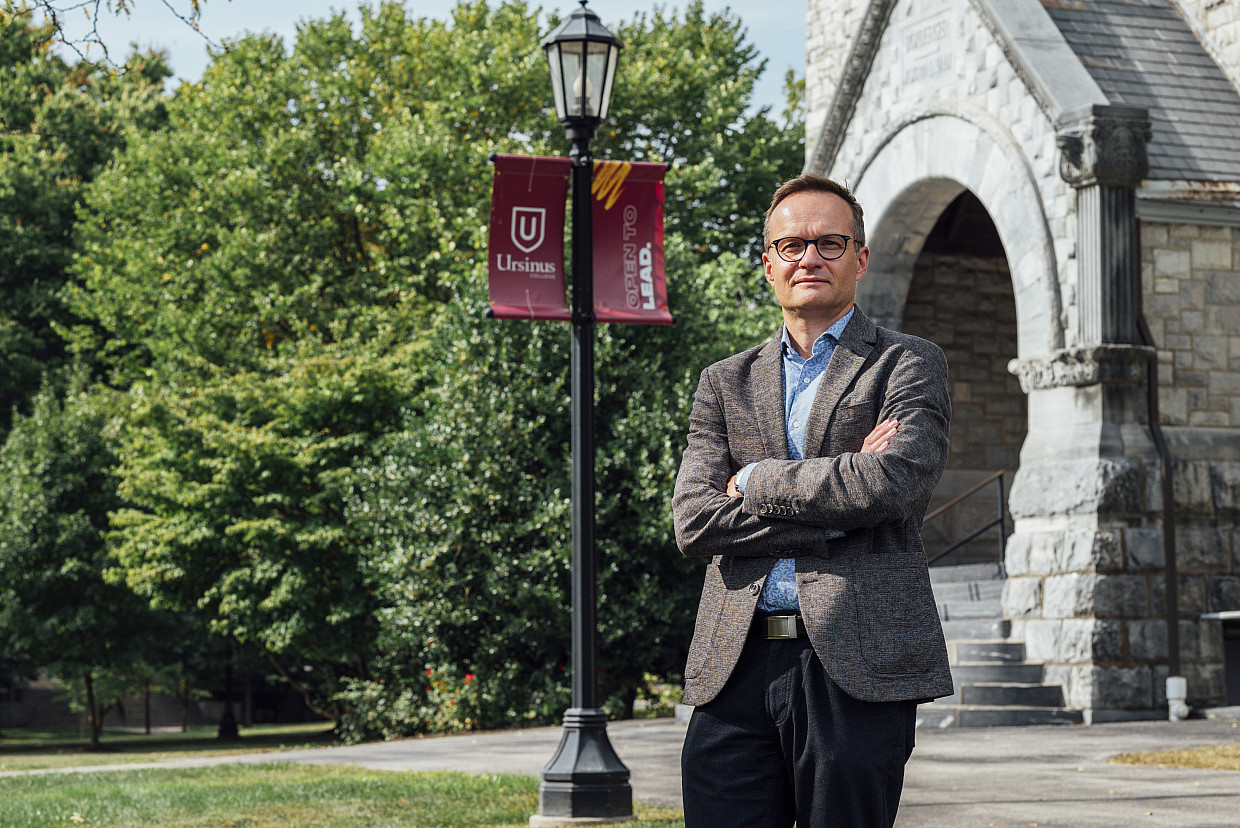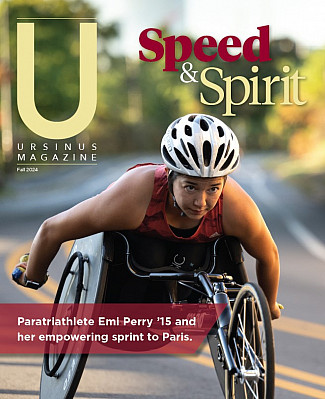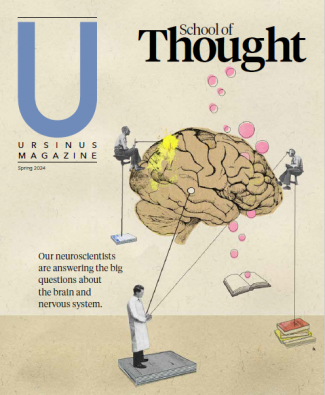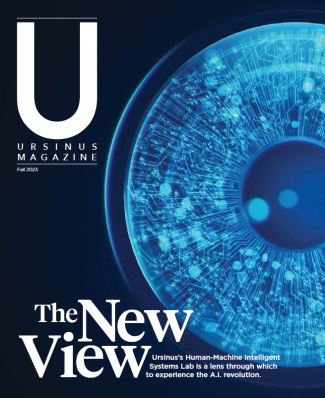
Gundolf Graml
He’s an Austrian-born scholar of German history and literature who is noted for leading innovative global learning experiences, something that hits pretty close to home for him. Oh, and he’s an avid hiker, too! Meet Gundolf.
Ursinus Magazine: Let’s start with the basics. Where were you born and raised?
Gundolf Graml: In Austria, where I grew up on my grandparents’ farm. It was one way I learned a lot of different skills, and then I attended an academic high school—a boarding school—that opened up the intellectual world for me. It happened at a time when the education system in Austria received new funding, so there were new teachers and new ideas. This became the wonderful ecosystem where I learned about the world.
UM: You earned your Ph.D. from the University of Minnesota. What brought you there?
GG: I studied at the University of Salzburg [in Austria], first studying communications and then German history and literature. After my master’s, I tried teaching, but didn’t find my traction there. One of my advisors encouraged me to study abroad because the University of Minnesota has a Center for Austrian Studies. I had never been to the U.S. and all I knew of Minnesota was that it translates to “clear blue water” from an indigenous word. I quickly came to appreciate the unique charm of the Midwest. A supportive, interdisciplinary group of faculty made for an easy decision to complete my Ph.D. at the University of Minnesota and that’s why I’ve never completed the second leg of the study abroad experience by going back.
UM: Your time abroad in the U.S. had a profound impact on your life and later, you led a renown global learning and leadership development experience at Agnes Scott College, which is where you were before coming to Ursinus. What significance can that have on a college student?
GG: What interests me is to educate students who want to make the world a better place, which sounds very lofty, but I believe it comes from a place where people want to contribute something positive. Global learning is always connected to study abroad, but it really means bringing together a diverse group of people to address challenges that transcend borders. And I find that’s one of the most satisfying ways of describing education in general.
It’s a reminder that our individual experience of the world is usually very narrow. When we talk about study abroad, we’re talking about going to a specific destination, right? You’re here now and then you go someplace else. But global learning, for me, speaks to the fact that something happens in that connection between the here and there—it’s a reciprocal process where something transformative happens.
UM: What draws you to literature and history?
GG: I think that as human beings, we exist in and through stories. We’re constantly telling ourselves where we come from, who we are, and where we’re going. Literary fiction is always probing the not-yet-realized, the imaginable, and the sometimes unimaginable. So, I think a crucial part of my work is to replenish the idea of imagination and creativity through literature.
UM: Do you have a favorite author?
GG: It’s hard to name only one, but in the context of representing history through literature, an author I really admire is Christoph Ransmayr, who wrote several novels that you might call historical fiction. I am drawn to authors who use literary fiction to explore the limitations of scientific or historiographic practice. Colson Whitehead’s The Underground Railroad is another powerful example. It takes the historical metaphorical description and turns it into a tangible and provocative alternative reality.
UM: You’re also an avid hiker. Do you have a favorite place you’ve hiked?
GG: The Alps. A few years ago, I received a grant to write about the remnants of World War I fortifications in the Dolomites where the Italian and the Austrian armies faced each other from 1914 to 1918. There were trenches at something like 10,000- or 11,000-feet altitude. A lot of the fortifications were covered in ice, but over time and due to climate change, these trenches have started reappearing. This brings up challenging questions around ecological and historical preservation. I took my family along and it brought together both my passion for history and my interest in imagining the “what if” of history.
I’ve been able to hike the Andes in Cusco, Peru, and in Ecuador. I would love to explore the Rocky Mountains, but in the meantime I’m happy to hit some of the beautiful trails along the Schuylkill River.
UM: What has struck you most about Ursinus so far, and what excites you about its future?
GG: What has struck me most is how passionate everyone is about providing the best possible experience for our students, and how hard people are working to make it happen. There is such a strong foundation to really create a standout experience for students that combines their education with a focus on personal and professional success in a way that very few other colleges can do. That makes me really enthusiastic about the future.


